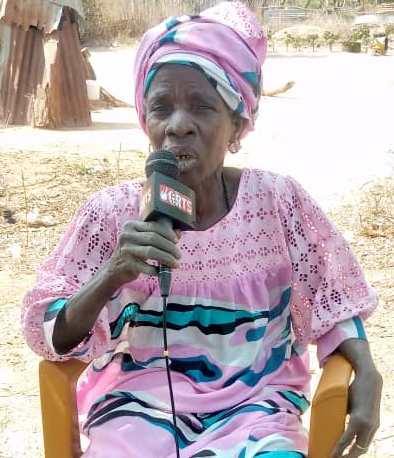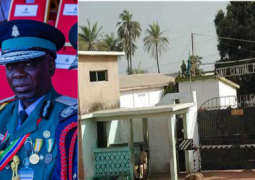
Naffisatou Kujabi, a widow and her family primarily depended on a breadwinner to support them monthly with a bag of rice.
The Nafa Programme – a component of The Gambia Social Safety Net Project (SSNP) (a US$ 31 million project) is jointly funded by the World Bank and government of The Gambia. The Nafa Programme is designed to promote continuity and harmonisation with other programmes, by expanding an existing package of cash transfers with SBCC managed by NaNA to new districts and regions.
The National Nutrition Agency (NaNA), Department of Social Welfare and Department of Community Development are the implementing partners of the ‘Nafa’ Programme. The Gambia SSNP is implemented in West Coast Region (WCR), Central River Region (CRR), North Bank Region (NBR) and Upper River Region (URR) targeting 15,606 extreme poor households. This equates to approximately 40 percent of the extremely poor households in The Gambia. For a start, it is being piloted in Foni Bintang, Nainija and Wuli West Districts.
The Project Development Objective (PDO) is to improve the coordination of social assistance activities, provide temporary social assistance support to rural households in the wake of COVID-19, and increase inclusion of the extreme poor in the Nafa Programme.
The beneficiary selection was done using a Proxy-Means Test (PMT) which was followed by a community validation exercise in the 20 poorest districts of The Gambia. The regular revenue provided to extreme poor households is aimed at increasing both short-term consumption of essential goods, and enabling longer-term investments in human and productive capital.
Tailored SBCC will provide information to beneficiaries and non-beneficiaries to encourage investments that can bolster human capital especially maternal and child health and nutrition, adolescence education and family planning; parenting and prevention of gender-based violence; and productive capital especially savings, entrepreneurship and agriculture to break the inter-generational cycle of poverty. In the three piloted districts, a total of 2,770 beneficiary households each received D3000 every two months during the three rounds of payment.
A native of Arangalleh village in Foni Bintang, WCR explained that her son is a soldier whose salary is not much and was only able to help them with a bag of rice every month. “We used to borrow our other needs from the shop and pay at the end of every month but now we are able to buy enough rice, soap, and give out lunch money.”
She further explained that her son (a soldier) has been supportive but his salary was minimal. However, since the intervention of the Nafa Programme (cash transfers and SBCC), life has eased for them.
Ousman Dem, the programme manager for the Social and Behavioural Change Communication (SBCC), Department of the National Nutrition Agency (NaNA), said he was impressed with what he saw.
However, he said he would appreciate to see more beneficiaries adopting ideal behaviours in order to build their resilience by engaging in entrepreneurship and finance literacy, improve their knowledge on nutrition, health and hygiene as well as prevention of Gender-Based Violence.





